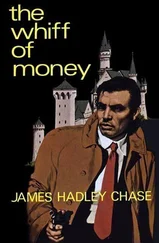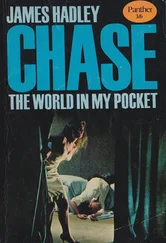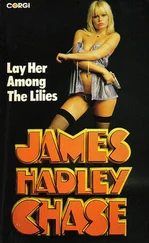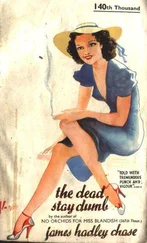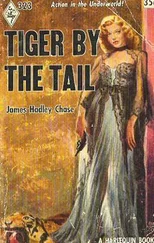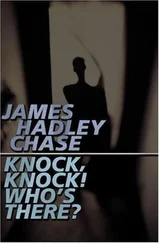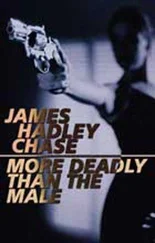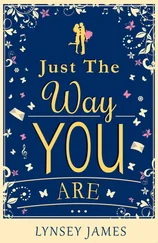James Chase - The Guilty Are Afraid
Здесь есть возможность читать онлайн «James Chase - The Guilty Are Afraid» весь текст электронной книги совершенно бесплатно (целиком полную версию без сокращений). В некоторых случаях можно слушать аудио, скачать через торрент в формате fb2 и присутствует краткое содержание. Год выпуска: 0101, Жанр: Старинная литература, на английском языке. Описание произведения, (предисловие) а так же отзывы посетителей доступны на портале библиотеки ЛибКат.
- Название:The Guilty Are Afraid
- Автор:
- Жанр:
- Год:0101
- ISBN:нет данных
- Рейтинг книги:4.5 / 5. Голосов: 6
-
Избранное:Добавить в избранное
- Отзывы:
-
Ваша оценка:
- 100
- 1
- 2
- 3
- 4
- 5
The Guilty Are Afraid: краткое содержание, описание и аннотация
Предлагаем к чтению аннотацию, описание, краткое содержание или предисловие (зависит от того, что написал сам автор книги «The Guilty Are Afraid»). Если вы не нашли необходимую информацию о книге — напишите в комментариях, мы постараемся отыскать её.
The Guilty Are Afraid — читать онлайн бесплатно полную книгу (весь текст) целиком
Ниже представлен текст книги, разбитый по страницам. Система сохранения места последней прочитанной страницы, позволяет с удобством читать онлайн бесплатно книгу «The Guilty Are Afraid», без необходимости каждый раз заново искать на чём Вы остановились. Поставьте закладку, и сможете в любой момент перейти на страницу, на которой закончили чтение.
Интервал:
Закладка:
I felt I was moving in the right direction, but I had still a lot more information to collect before I could get further than guesswork.
I arrived back at the bungalow at a quarter to three. I was pretty tired by then. I unlocked the front door and, turning on the light, I entered the lounge.
I had in mind to give myself a small whisky and soda before turning in, and I was crossing the lounge towards the bar when I saw something lying on one of the small occasional tables that made me pause.
It was Margot’s evening bag: a pretty thing in black suede in the form of a scallop shell. I picked it up, idly pushed open the gold clasp and opened the bag. In it was a built-in powder compact in gold. A silk pocket contained a handkerchief. I pushed the handkerchief aside and saw beneath it a match-folder in red water silk.
For a long moment I stared at it, then I picked it out, set down the bag and turned the fold over between my fingers.
I opened it. There were only thirteen matches: the others had been torn out of the folder. Bending the matches back I saw a row of numerals printed on the back of them. The numerals ran from C451148 to C451160.
I knew then this was the match-folder I had found in Sheppey’s suitcase; the one I had hidden under the carpet in my hotel bedroom; the one that had been stolen. As I stared at it, the telephone bell began to ring, making a loud, strident sound in the silent bungalow.
I slid the folder into my pocket and walked over to the telephone and picked up the receiver.
“Hello, yes?” I said, fairly certain who was calling.
“Is that you, Lew?”
Margot’s voice. She sounded a little out of breath.
“Hello again: don’t tell me: I know. You’ve lost something?”
“My bag. Did you find it?”
“It’s right here on one of the tables.”
“Oh, good. I didn’t know if I had left it at the club or in your car. I’m always leaving things in places. I’ll pick it up tomorrow morning unless you are passing and can leave it for me. Could you?”
“That’s all right. I’ll leave it sometime during the morning.”
“Thank you, darling.” There was a pause, then she said, “Lew . . .”
“I ‘m still with you.”
“I’m thinking of you.”
I put my hand in my pocket and fingered the folder.
“I’m thinking of you too.”
“Good night, Lew.”
“Good night, beautiful.”
I waited until I heard her hang up before I replaced the receiver.
III
I awoke around ten o’clock the following morning. For some minutes I lay in the big double bed, staring up at the patterns made by the sun on the ceiling. Then I ran my fingers through my hair, yawned, threw off the sheet and got out of bed.
A long, cold shower brought me fully awake. Wearing only my pyjamas, I went into the kitchen and made some coffee. When it was made, I carried it out and drank it on the terrace.
From where I sat I could see the building that housed the School of Ceramics perched on its rocky peninsula: a low rambling building that had a blue-tiled roof and white walls.
I decided as soon as I was dressed I’d go out there and mix with the tourists and see what there was to see.
When I had finished the coffee, I returned to my bedroom, put on a pair of swimming trunks and then went down to the sea. I spent half an hour proving to myself that I was still as husky and athletic as I liked to think I was. After I had swum out about a quarter of a mile, I found myself getting slightly short of breath, so I turned around and made for the shore, with a longer stroke and at a slower speed.
I went back to the bungalow, dried off, put on a pair of slacks and an open-neck shirt, then, locking up the bungalow, I got in the Buick and set course for Arrow Point.
By then the time was twenty minutes past eleven. If there were going to be tourists, this was the time when they would begin their visit.
I had to get back on to the promenade, and after a five-minute drive, I came upon a branch road which had a sign that said: This way for the School of Ceramics: the Treasure House of Original Design.
As I turned on to the road I saw in my driving mirror a big blue and white rubberneck bus loaded with eager beavers with the usual brick-red faces and awful hats and making the usual over-happy noises.
I pulled to one side and let the rubberneck get ahead of me. It went past with a roar and a stream of dust that kept with me all the way up the long road and through the double gates leading to the blue-tiled building. There were already six cars in the parking lot as I pulled up. An elderly man wearing a white coat, the pocket of which had a design of two fishes floating in a wine-red sea on it, came over and gave me a parking ticket.
“One dollar,” he said with an apologetic smirk as if he knew it was robbery, but there was nothing he could do about it.
“I bet they hate anyone who has the strength to walk,” I said, giving him the dollar.
He said no one ever walked.
I was killing time by talking to him. I wanted the bunch from the bus to get themselves sorted out. I planned to walk in with them.
By the time I had crossed the parking lot, they had got out of the bus and were moving towards the entrance to the building. I tagged along with them.
The courier, a busy, worried little man, bought tickets at the door and shepherded his flock through a turnstile into a big hall. I paid out another dollar, was given a ticket by a hard-eyed man in a white coat with the fish symbol showing on his pocket.
He told me if I bought anything I’d get a refund on my ticket.
“Heads you win, tails I lose,” I said.
He lifted his shoulders.
“If you knew the number of jerks that come in here out of the sun before we began to charge them entrance and never bought a damn thing, you’d be surprised.”
I could see his point.
I went through the turnstile, and was in time to join up with the last straggler as he moved after his party into a big room crammed with pottery of all shapes, sizes, colours and designs. The overall effect was pretty horrible.
The room was around fifty feet long and twenty feet wide. On each side were long low counters which held more specimens of pottery. Girls, wearing white coats with the fish symbols on the pockets, stood behind the counters. They watched the bunch come in with bored eyes. I found myself thinking that Thelma Cousins had probably stood behind one of these counters and had probably watched a similar bunch of tourists with the same bored look only a few days ago.
There were about twenty girls in the big room, all dressed alike, all shapes and sizes, all ready to sell something the moment anyone paused or was unwise enough to handle the ugly specimens of pottery on show.
At the far end of the room was an open doorway across which hung a wine-red curtain. A hard-faced blonde sat on the chair by the curtain, her legs crossed, her hands folded in her lap. She looked as if she had been sitting like that for a long time.
I tagged along in the rear of the tourists, pausing when they paused, shuffling on when they shuffled on. It surprised me the amount of stuff they bought: the prices were high and the stuff was pure junk.
I kept my eye on the curtained doorway. I had an idea that it was beyond that curtain the real business was done. A fat old woman, her wrinkled fingers loaded with diamond rings, carrying a wheezing Pekinese, suddenly came out from behind the curtain. She nodded to the hard-faced blonde, who gave her an indifferent stare. The old woman walked down the centre aisle and went out. Through one of the big windows I saw her heading for a Cadillac where a chauffeur was waiting.
I caught the eye of one of the girls behind one of the long counters: a pretty little thing with a pert nose and a cheeky expression.
Читать дальшеИнтервал:
Закладка:
Похожие книги на «The Guilty Are Afraid»
Представляем Вашему вниманию похожие книги на «The Guilty Are Afraid» списком для выбора. Мы отобрали схожую по названию и смыслу литературу в надежде предоставить читателям больше вариантов отыскать новые, интересные, ещё непрочитанные произведения.
Обсуждение, отзывы о книге «The Guilty Are Afraid» и просто собственные мнения читателей. Оставьте ваши комментарии, напишите, что Вы думаете о произведении, его смысле или главных героях. Укажите что конкретно понравилось, а что нет, и почему Вы так считаете.


